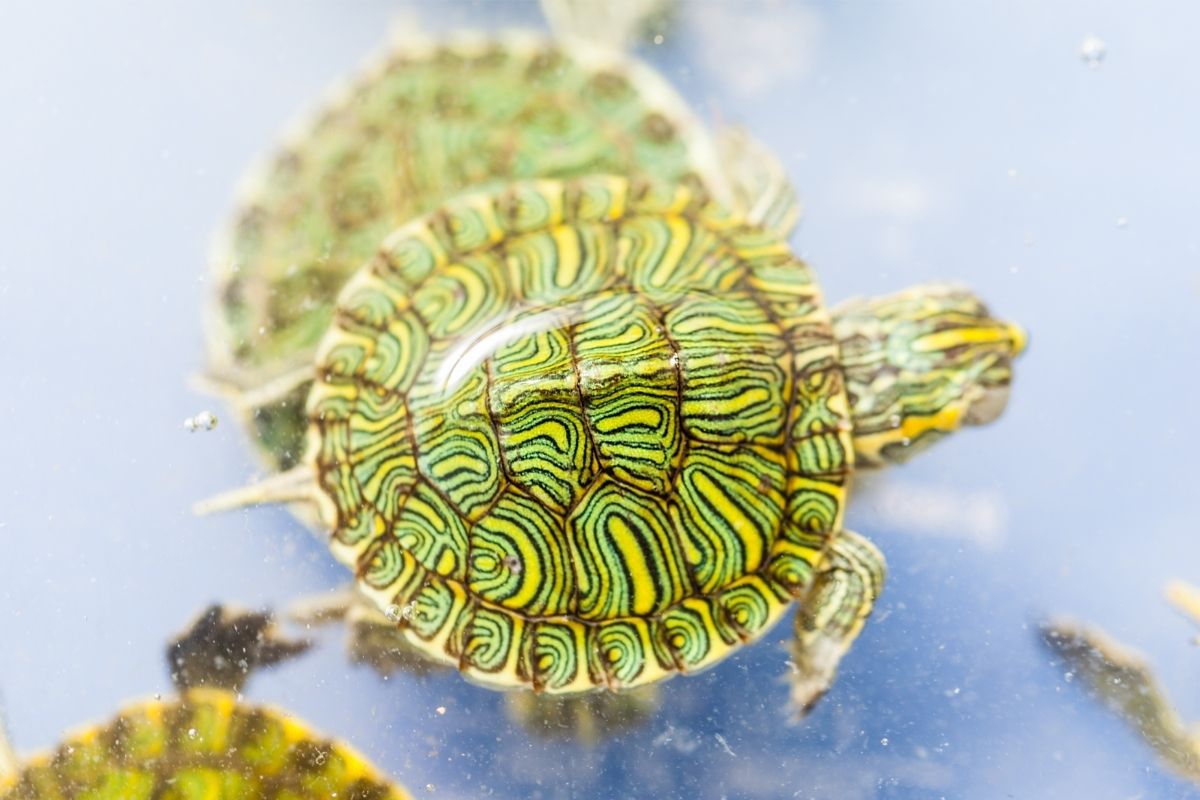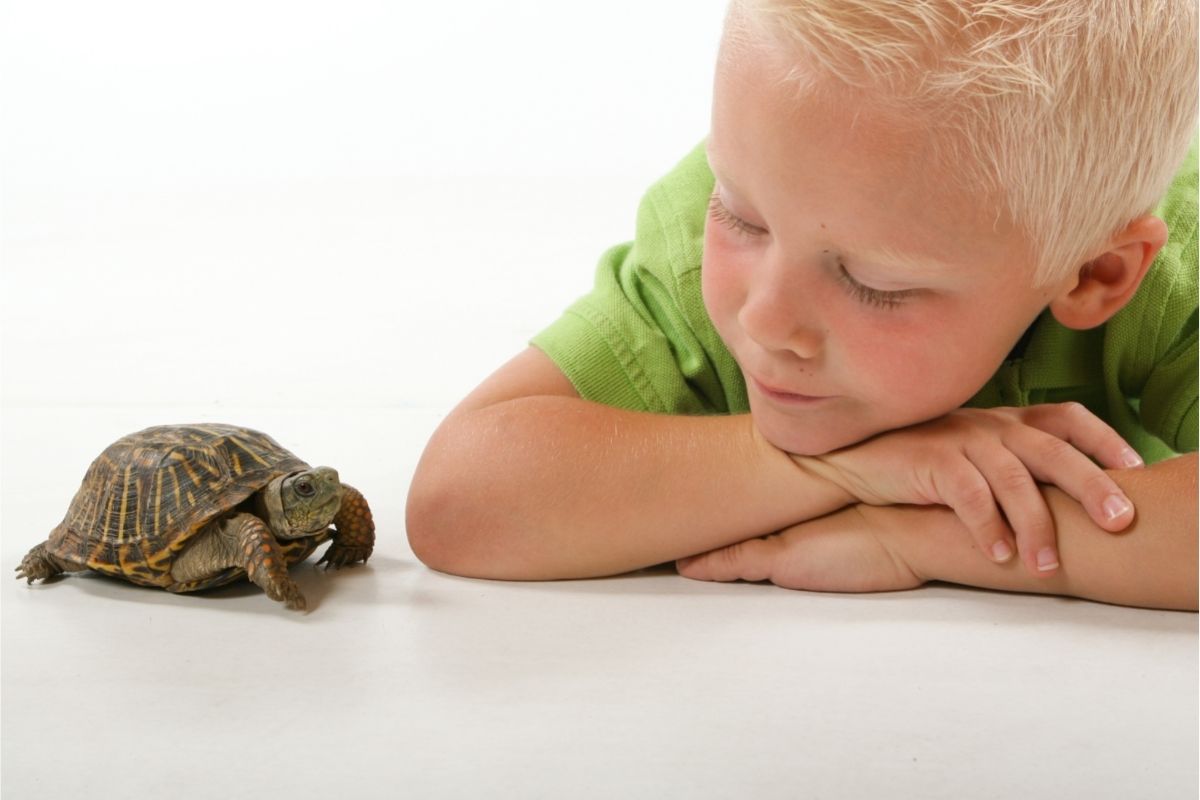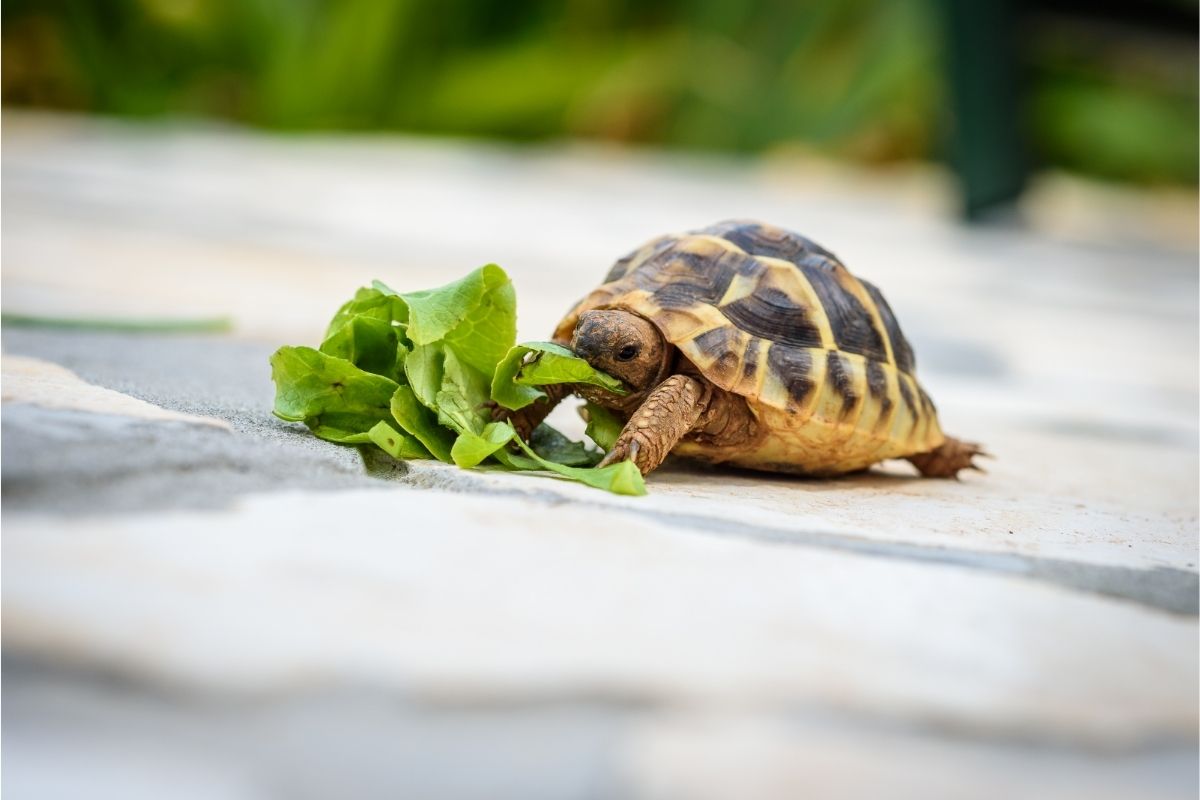Turtles are known for being slow moving creatures, but they also have some pretty interesting habits. One of them is that they eat their own poop.

What does this mean exactly? And why would anyone want to eat his or her own feces? Ew!
About Turtles
Turtles are reptiles that live in water and absorb oxygen through their cloaca. They spend most of their time in the water.
Turtles are omnivores, meaning they eat plant material as well as some smaller sea creatures from time to time.
Their diet consists mainly of vegetation, such as weeds and plants, but they also consume insects, worms, snails, fish, and other aquatic organisms.
Turtle eggs hatch after about two months. The young turtles grow quickly, reaching sexual maturity within a year. When the female turtle lays an egg, she covers it with sand so it will not get wet.
She then leaves the nest to find food. After hatching, the baby turtles stay in the nest until they can swim away.
The average lifespan of a freshwater turtle is 10-15 years. Some species may live up to 30 years.
Turtles do not breathe air as humans do. Instead, they use gills on their necks to take in oxygen. This allows them to survive underwater for long periods of time.
Turtles lay between 50 and 200 eggs per clutch during the breeding season. These eggs usually hatch at night.
A male turtle protects his territory by making loud sounds. His calls warn off intruders.
Turtles are found all over the world. There are more than 300 different species of turtles living today. Most of them live in freshwater.
Some turtles are endangered because of human activities. For example, many turtles were hunted for their meat. In addition, turtle shells were used for decorative purposes, which led to a decline in numbers.
Some turtles are considered pests. For instance, green sea turtles are often seen swimming near beaches where people go swimming.
They sometimes become stranded when they try to cross roads or streams.
Today, many people keep turtles as pets. However, these turtles are raised in captivity and are fed specially prepared diets.
Why Does My Turtle Eat Their Own Poop?
When a turtle eats his own feces, he is actually eating the bacteria that live in his digestive tract. He needs the bacteria for digestion.

Turtles eat their own poo, older turtles’ poop, and sometimes even fish poop. Eating feces is called coprophagia.
They usually resort to eating feces when they require the healthy bacteria that is leftover in the feces, because it aids in their digestion.
Juvenile turtles often eat feces from older turtles to obtain beneficial bacteria that help them survive.
It may sound gross to some, however, this is a fairly common occurrence among animals.
Turtles raised in captivity typically don’t exhibit this behavior. Nevertheless, if you want to prevent this from occurring, you should watch your pet closely when they are pooping.
This is sometimes impossible to do, though. The other option to prevent this is investing in a high quality filter.
What To Do If Your Turtle Is Eating Its Own Poop
A filter that prevents your turtle from eating poop is a good solution, as the filter breaks up the poop before your pet turtle has a chance to eat it.
There are many tank filters available on the market. You should choose one that is suitable for the size of your tank.
You can use a filter that uses any combination of materials, including activated carbon, bio sponges, and biofloss, to ensure that nitrites and ammonia are eliminated from the tank.
The most important aspect of the filter is that it breaks down the poop effectively before your pet turtle has a chance to eat it.
How Often Do Turtles Poop?
In general, turtles defecate every day, but some species have longer cycles. Green sea turtles, for example, defecate once every two days.
However, this varies depending on the temperature of the environment. Sea turtles tend to defecate less frequently when temperatures drop below 50 degrees Fahrenheit (10 °C).
If your turtle doesn’t defecate regularly, you should check the pH level of the aquarium. If the pH is too low, then there will be an accumulation of ammonia and nitrite.

This could lead to health problems.
If you notice that your turtle isn’t defecating at all, then you should take action immediately.
You should also clean out the tank thoroughly so that the turtle can get rid of the waste.
You should also make sure that the water parameters are within acceptable limits.
How To Prevent Turtles From Eating Their Own Poop
To prevent turtles from eating their own poop, you need to monitor the amount of food your pet turtle gets.
Make sure that you feed your pet turtle enough food to meet its nutritional requirements. Make sure that the food you provide is balanced with vitamins and minerals.
Also, make sure that you change the water daily. This ensures that the water remains fresh and free of harmful chemicals.
Also, make sure that you keep the aquarium clean. Cleaning the aquarium helps remove unwanted particles and debris that could cause harm to your turtle.
What Happens When My Pet Turtle Eats Its Own Poop?
When your pet turtle eats their own poop, it may be a sign that your turtle is deficient in valuable nutrients such as calcium, phosphorus, magnesium, sodium, potassium, and iron.
These nutrients are essential for healthy growth and development. Therefore, if your pet turtle eats its own feces, then it may grow slower than normal.
This means that your pet will require more time to reach maturity.
Why Is My Turtle Eating Rocks?
Some turtles like to eat rocks because they mistake them for food.
This is not necessarily bad; however, if your turtle eats rocks excessively, then you should consider removing them from the tank.
Your pet turtle might be suffering from indigestion or constipation. In these cases, you should consult your vet about how to treat your pet.
Your pet may also be experiencing stress. If this is the case, you should try to help your pet by providing him/her with more space in the tank.
Why Is My Turtle Eating Gravel?
Turtles sometimes eat gravel because they mistake it for food.
This may occur if your turtle eats food pellets. It may also be a sign that your turtle has nutrient deficiencies. If you think this is the case, then you should feed your turtle some fresh vegetables in small amounts.
Conclusion
As we mentioned earlier, turtles eat their own poop. However, this does not mean that you should never feed your pet turtle. Normally, captive, adult turtles tend to defecate between 2 and 3 times per week.
Juvenile turtles defecate more often, usually one per day at least. For older turtles, the frequency of their defecation is dependent on their age, diet, weight, and what their sleep cycle is like.
Eating poop, although gross, is a part of nature among many different animals, especially turtles. It is not considered dangerous or unhealthy, but it shouldn’t occur in pet turtles.
Turtles in the wild require the healthy bacteria found in their poop, as it is beneficial for their digestive health.
For your pet turtle, a good filter is very beneficial for them and the cleanliness of their tank.
It’s a good idea to invest in a good filter, which will break up poop from the water and remove toxins from it, making their tank nice and clean.
As long as you follow these guidelines, your turtle will remain healthy.
